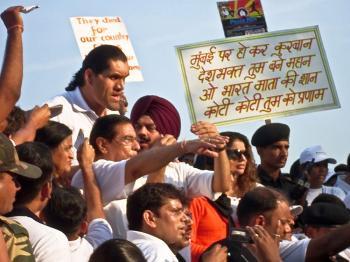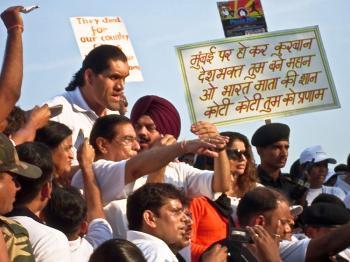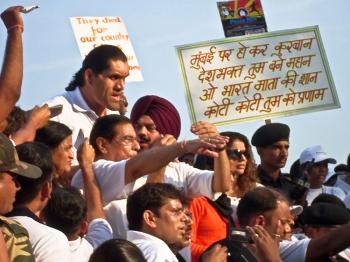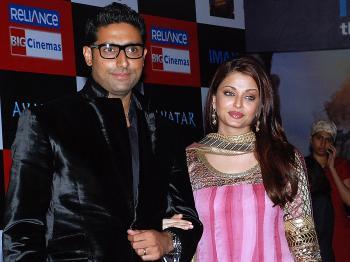One Year Later, Mumbai Remembers Terrorist Attacks
Men, women and children gathered early morning Sunday at the Oberoi Trident Hotel to grieve for those slain.

A crowd gathers on Nov. 22 to commemorate the victims of the 2008 terrorist attacks in Mumbai, India. Suren Rao/The Epoch Times
|Updated:



